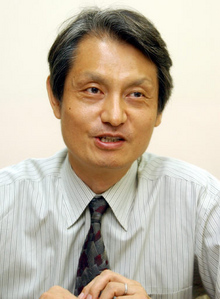 |
What is notable about the proposals in the air is that they are specific and, if conditions are right, they can be implemented immediately. Excluding the new factor present - the U.S. action on North Korean bank accounts - the formula is similar to the proposed first action of the 1994 Agreed Framework between the two countries, which linked the freezing of nuclear activity and the giving of energy aid. The situation is, of course, a different one from 1994 now that North Korea has tested a nuclear bomb. However, there would be no small benefit for the U.S. and the North to gain from a minimum of an agreement, including something similar to what was agreed upon in 1994. The North currently has enough plutonium to produce 13 nuclear devices, so it would be well worth agreeing to halt the Yongbyon facility if that would turn the sanctions around and help the North obtain the food and energy it needs. Even if the Bush administraion is not willing to use the method of giving the North oil, as stipulated by the 1994 Agreed Framework, it needs to somehow prevent the situation form being worse. In that respect, the issue of halting the Yongbyon nuclear facility could play a role in leading to the address of North Korea’s nuclear program on a whole. U.S. negotiator Christopher Hill’s demand that the North report all its nuclear activities and close all testing facilities could be seen as seeking a gradual approach to the situation, different from that of the Clinton administration. You get the feeling that the U.S. and North Korea find themselves in reversed positions in the wake of Pyongyang’s nuclear test on October 9. Since September of last year, North Korea has virtually clung to the U.S., calling for negotiations while making no secret of the fact that U.S. financial measures have struck a major blow. The U.S., in the meantime, was feeling quite satisfied with the effects of those measures and refused to make even basic contact with the North Koreans. Looking back on it all, everything might have been calculation on the part of North Korea; it consistently publicized its difficulties under U.S. sanctions, and in this way might have used the Bush administration’s pressure and hard-line attitude in order to create a "reason" in international eyes for its nuclear test. If it hadn’t been for an entire year of wrangling back and forth between Washington and Pyongyang, the North’s nuclear test would have been far more shocking to the world than it already was, and would have perhaps garnered an even stronger international response. This time around, it looks like the once hard-line Bush administration is now obsessed with negotiation. Its officials are all saying the six-party talks need to continue, despite the North’s grand posturing. Granted, this all comes after the failure of the current administration’s policy in Iraq and defeat of the Republicans in recent midterm elections, so hard-line policy within the Bush administration is being downplayed. But, of course, the U.S. also needs to lay low for a while so it can defend itself against domestic and international criticism ahead of the next phase of pressure on the North. The U.S. and China deliberately let everyone see how close they were cooperating on the six-party talks. They have a lot of factors for conflict between them, but the Bush administration is turning toward ways to engage China in strategic cooperation. You might say that with "denuclearization" as their common interest, the U.S. and China are commencing on a "joint management" regime over the future of the Korean peninsula. The more things ’go nuclear’, the more the so-called big states are going to involve themselves and interfere in the peninsula. Before South Korea’s stature is further deteriorated, it needs to engage in multi-level work to persuade North Korea to make the right choices regarding its nuclear program. Please direct questions or comments to [englishhani@hani.co.kr]





